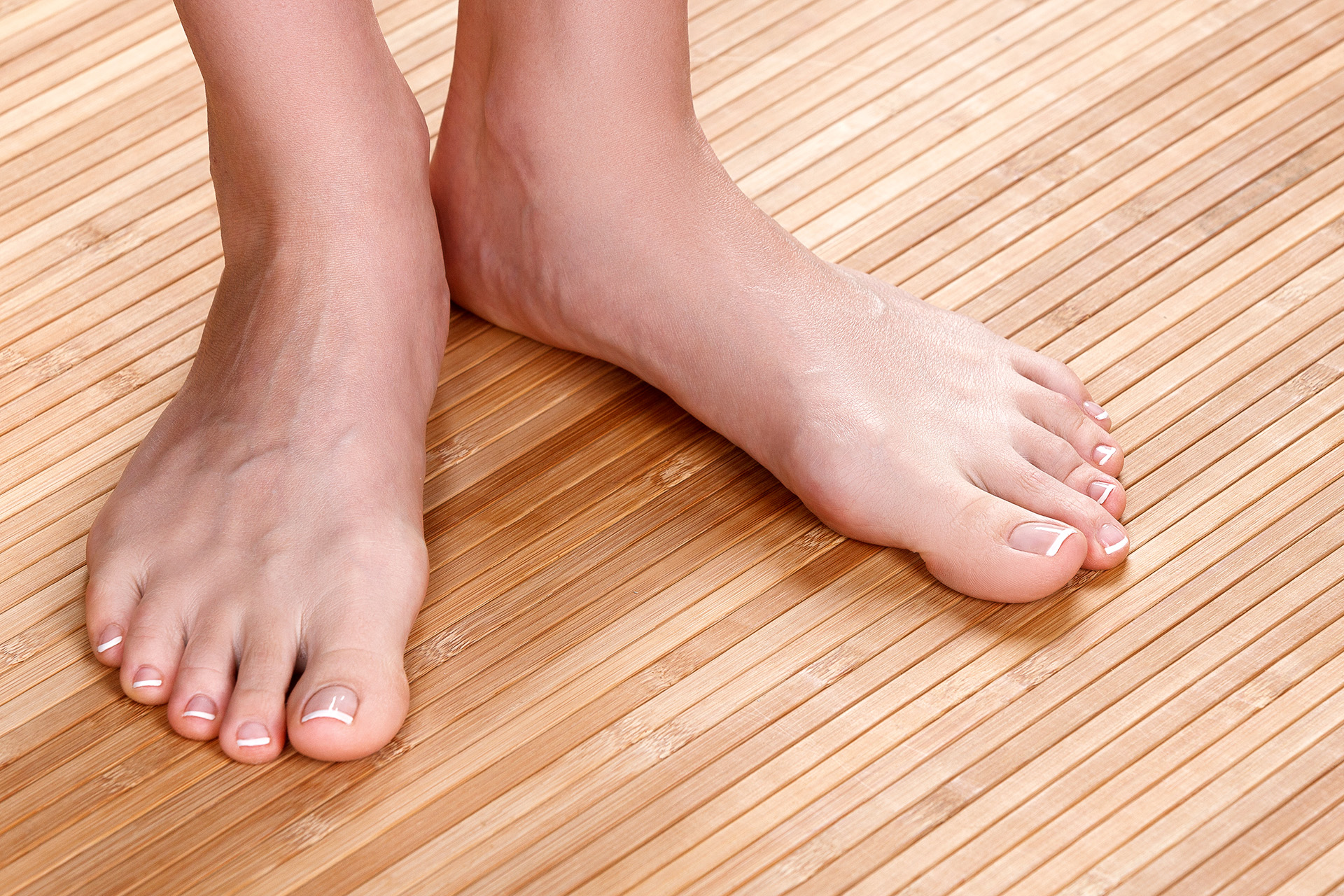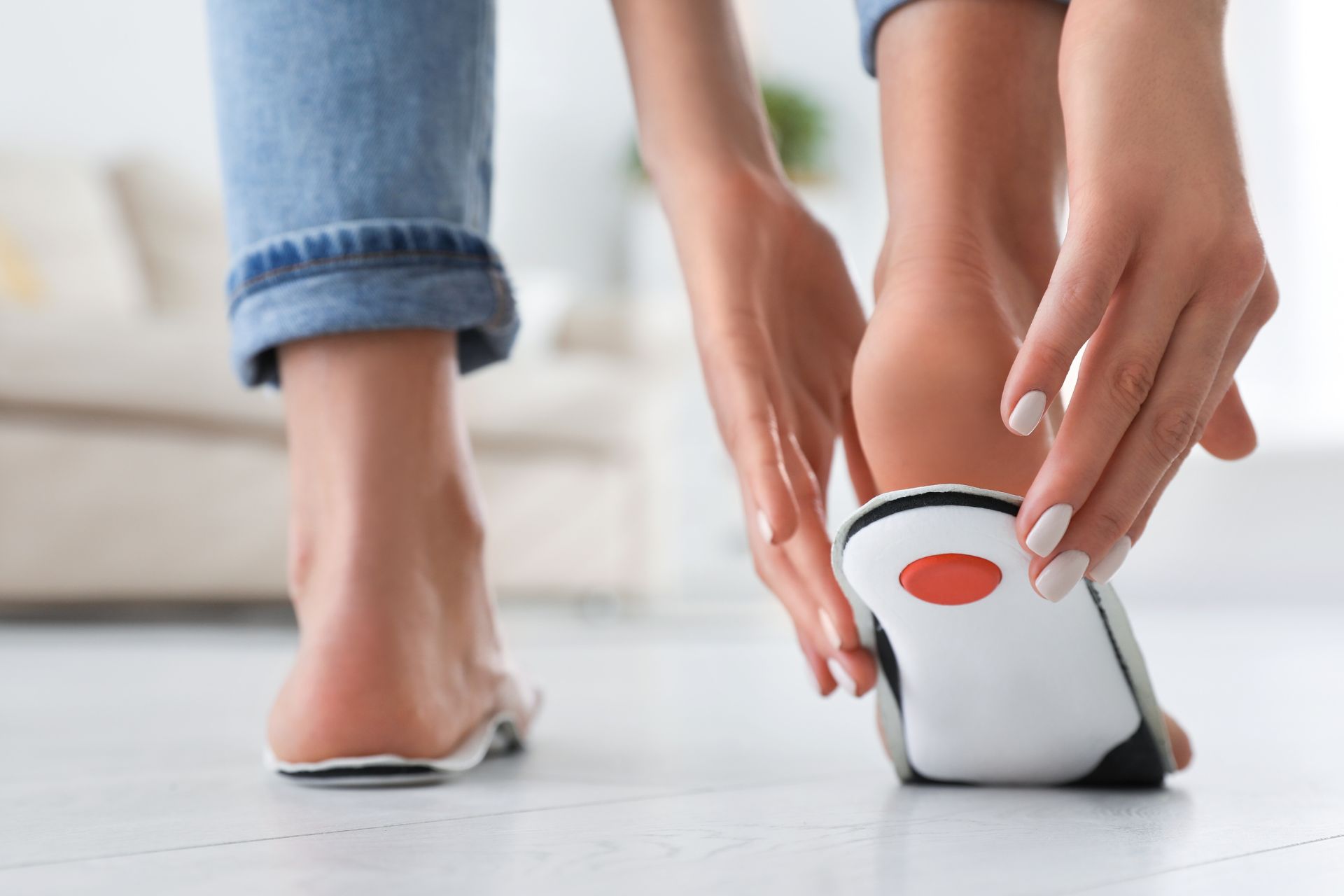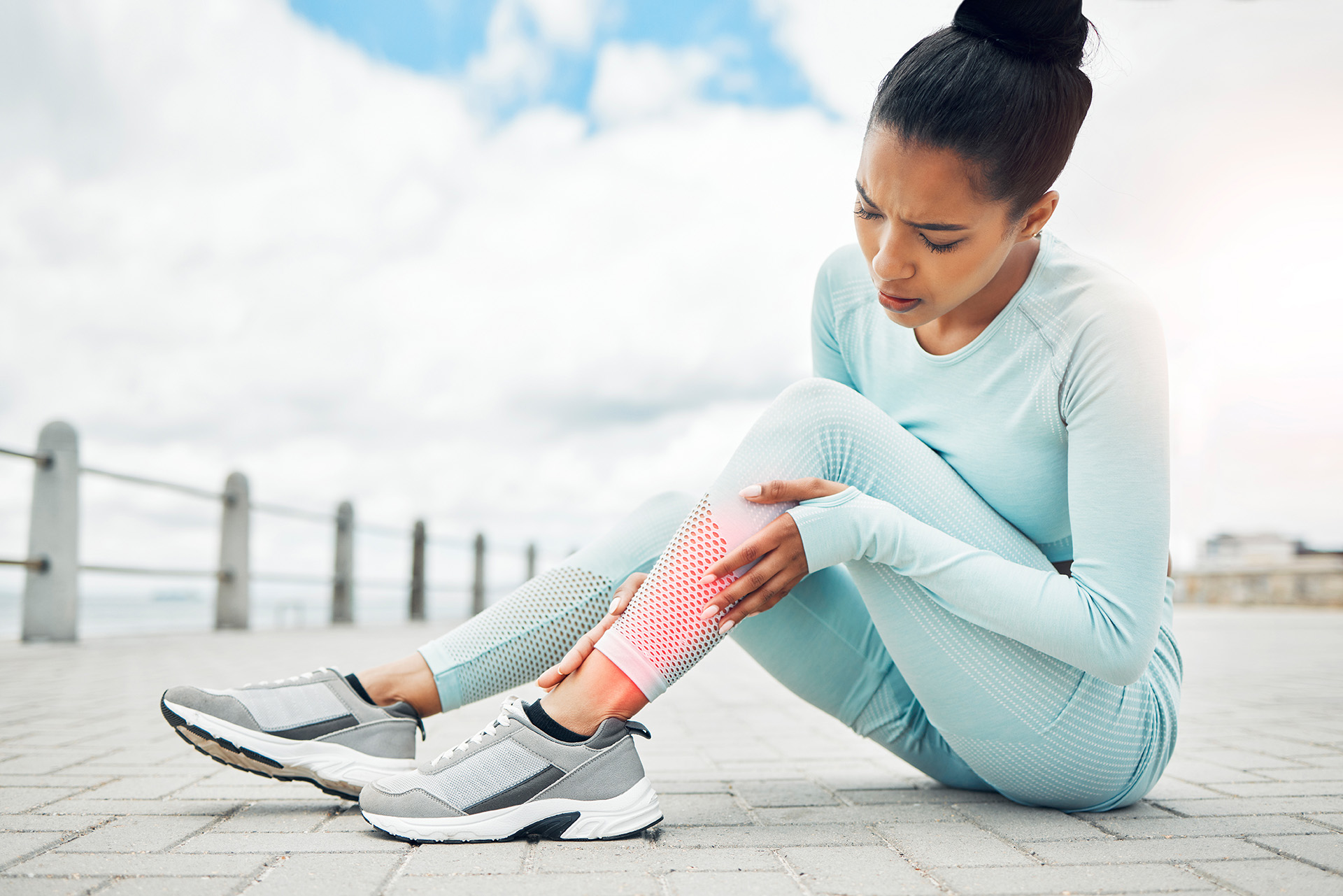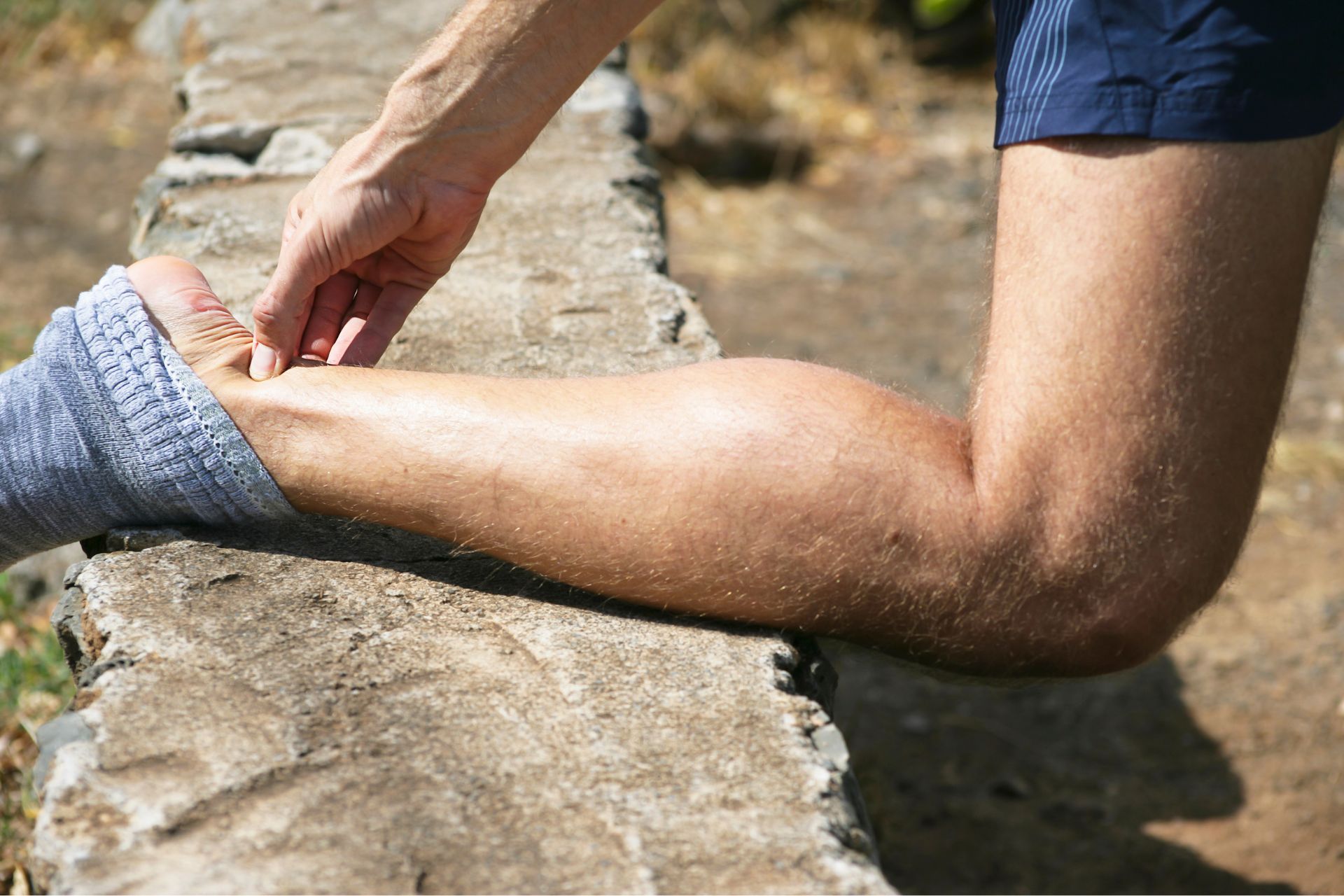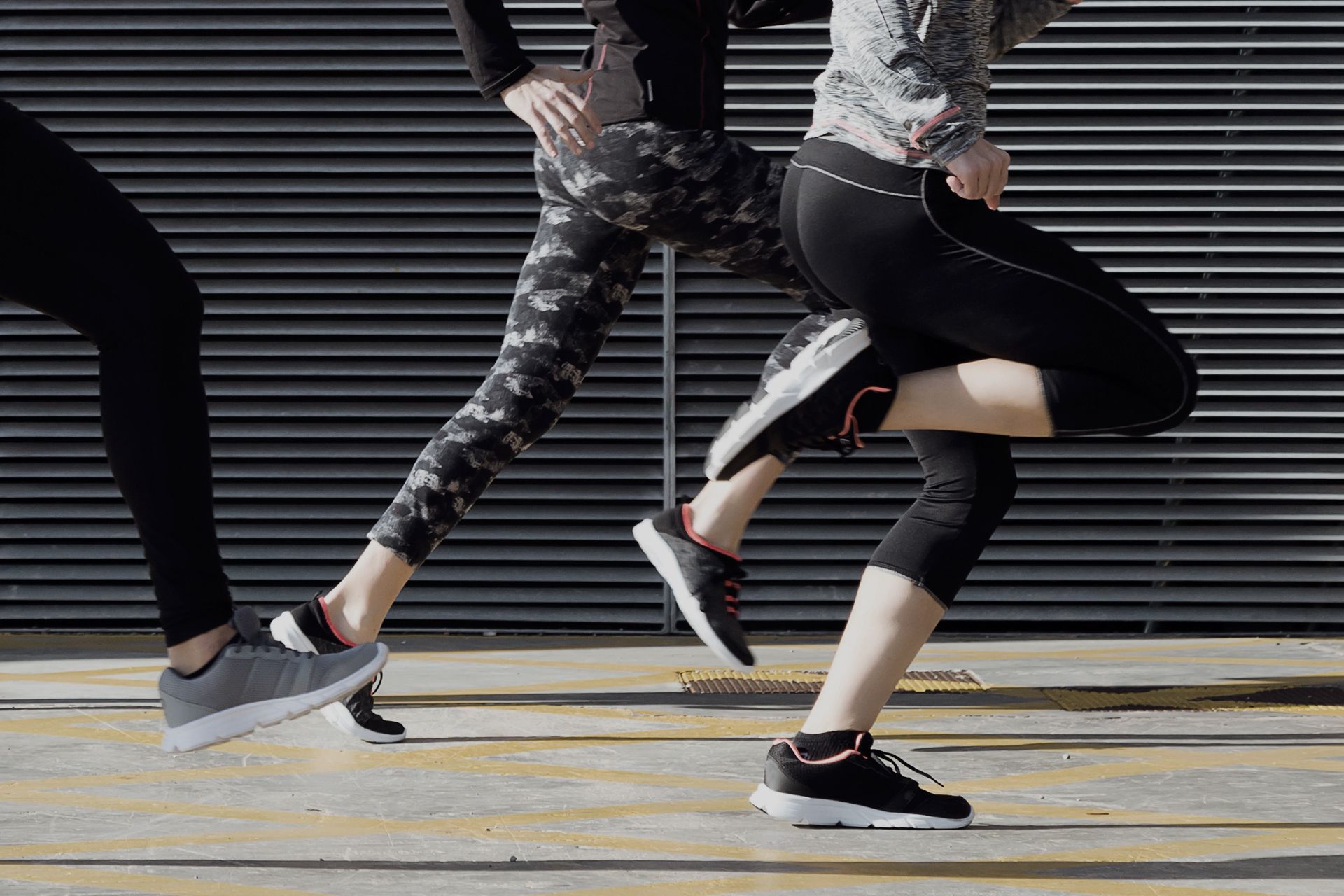The Foundation of Your Golf Swing: Your Feet
When analysing the perfect golf swing, much attention is paid to grip, stance, and the movement of the upper body. However, the true foundation of a powerful and consistent swing begins where you might least expect it—your feet.
The importance of proper foot support in golf cannot be overstated. During a swing, your feet maintain stability, facilitate the correct weight transfer, and generate the ground force needed for maximum power. Even the most technically sound swing can lose efficiency and consistency without proper support.
Golf insoles and orthotics offer solutions to these fundamental concerns, providing enhanced stability and support where standard golf shoes might fall short. Whether you’re a weekend warrior or a seasoned professional, the right golf shoe insoles could be the key to unlocking improvements in your game that technical adjustments alone cannot achieve.
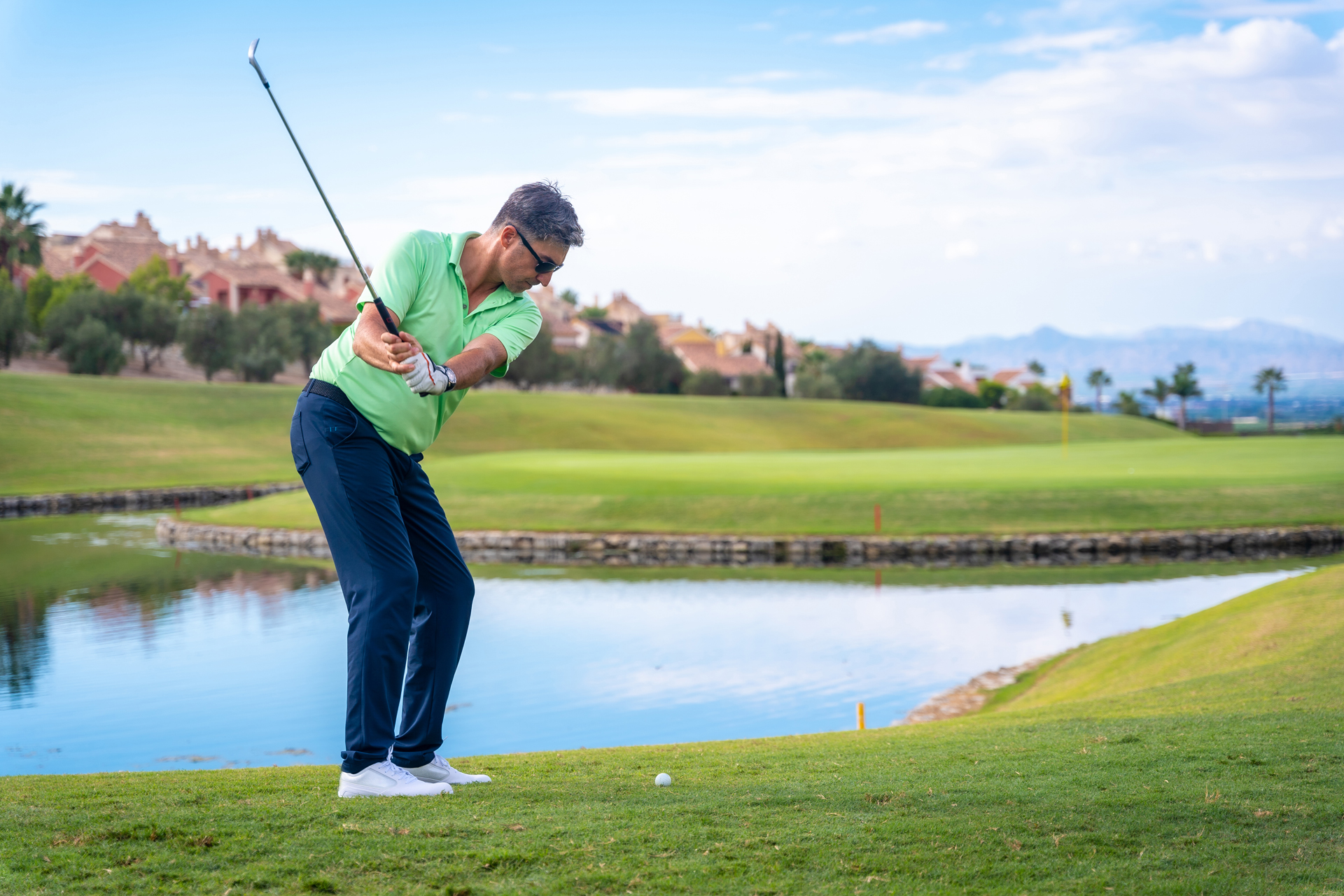
Understanding the Biomechanics of Golf and Your Feet
The golf swing places unique demands on your feet that differ significantly from other sporting activities. During the backswing, weight shifts to the rear foot; during the downswing and follow-through, it transfers dramatically to the lead foot. This asymmetrical loading pattern creates specific requirements for support that standard shoe insoles often cannot provide.
The rear foot typically requires stability against pronation (rolling inward), while the lead foot needs support during the aggressive weight transfer and rotation that occurs through impact. This is where specialised golf orthotics come into play—they can be designed to account for these sport-specific movements.
Research has demonstrated that the forces generated during a golf swing can exceed your body weight several times. These forces may lead to excessive strain on the feet, ankles, knees, and even the lower back without proper support. Insoles for golf shoes help distribute these forces more evenly, reducing wear and tear on your joints and muscles.
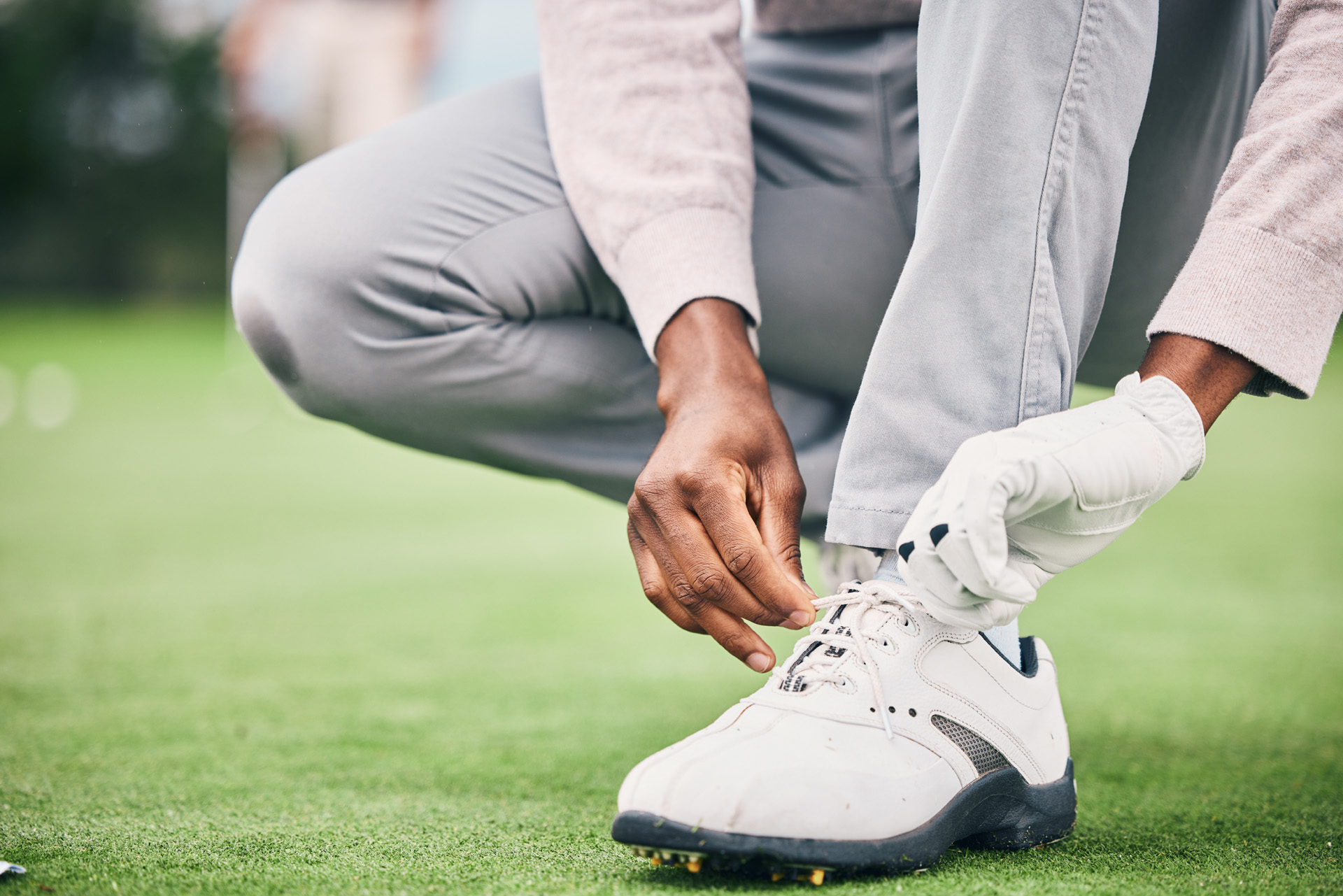
The Evolution of Golf Footwear and Support
Historically, golf shoes were dress shoes with spikes added for traction. Today’s golf footwear has evolved dramatically, with designs based on scientific understanding of golf biomechanics. Despite these advances, Paul Worsfold’s research suggests significant room for improvement in golf shoe design, particularly regarding the asymmetrical demands placed on the front and back foot during the swing.
This is precisely where golf shoe insoles and orthotics bridge a critical gap. While shoe manufacturers must design for the mass market, custom or specialised insoles for golf shoes can be tailored to your specific foot structure and swing characteristics.
The hilly terrain of golf courses further complicates matters. Walking several kilometres across undulating ground requires comfort and consistent support that prevents fatigue and maintains proper biomechanics throughout your round. The best insoles for golf shoes should therefore support both the dynamic movements of your swing and the extended walking demands of the sport.
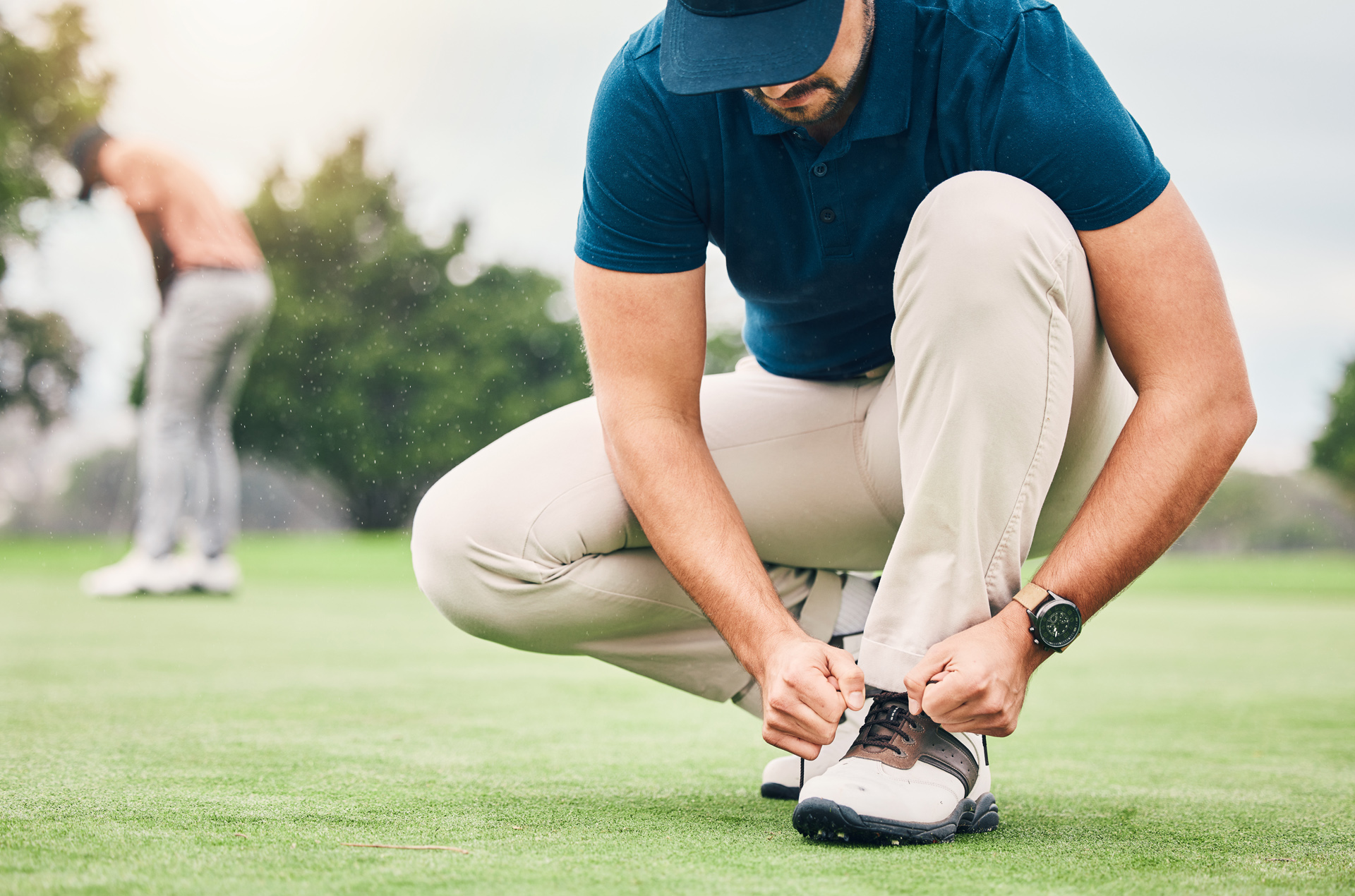
Scientific Evidence Supporting Golf Orthotics
The benefits of orthotics for golfers aren’t merely theoretical—scientific research has demonstrated tangible improvements in performance metrics. One particularly compelling study by Stude found that experienced golfers using custom-made, flexible orthotics daily for six weeks experienced a 3-5 mph increase in clubhead velocity. This improvement translates to approximately 15 additional yards on drives—a significant advantage by any standard.
Another three-month randomised controlled trial conducted by McRitchie with 32 amateur golfers revealed that golf orthotic insoles significantly alleviated pain while improving foot posture by managing pronatory movements. These findings suggest that orthotics enhance performance and contribute to injury prevention and pain management.
The benefits of golf shoe orthotics may be even more pronounced for golfers dealing with specific foot conditions such as plantar fasciitis, flat feet, or supination issues. By correcting biomechanical imbalances, orthotics help ensure that the force generated during your swing is efficiently transferred without placing undue stress on vulnerable areas of the foot or ankle.
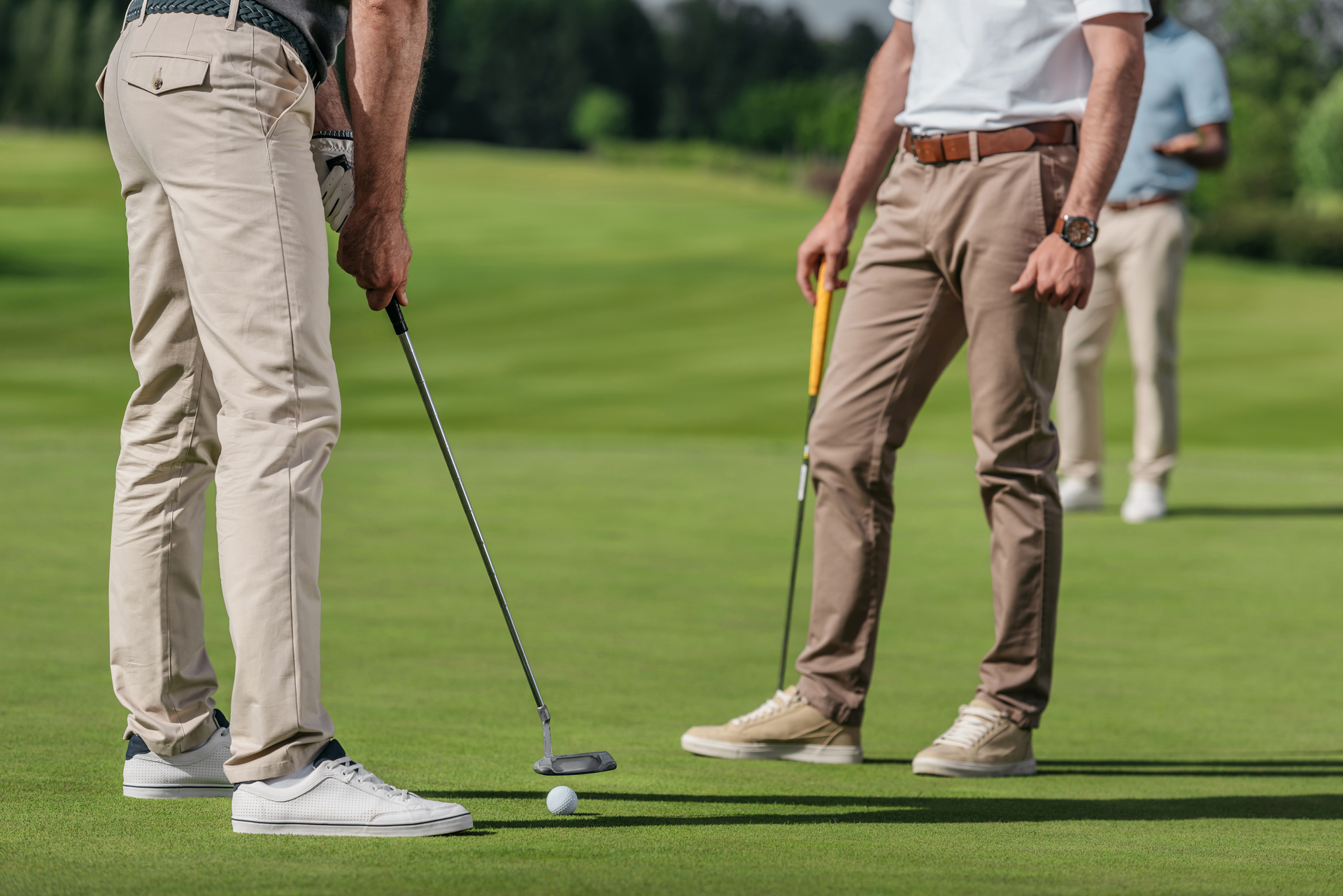
Custom vs. Pre-fabricated Golf Insoles: Which Are Best?
When shopping for the best golf shoe inserts, you’ll encounter two main categories: pre-fabricated (off-the-shelf) insoles and custom orthotics. While both options offer improvements over standard shoe insoles, there are important distinctions to consider.
Pre-fabricated golf insoles are generally more affordable and accessible. These products come in standardised sizes and provide general support and cushioning. For casual golfers or those without specific foot issues, quality pre-fabricated insoles may provide sufficient improvement at a reasonable price point.
On the other hand, custom golf orthotic insoles are precisely manufactured to suit your unique foot structure and swing mechanics. Podiatrists typically prescribe after a comprehensive assessment of your feet and gait. Research by Hawke et al. suggests that custom orthotics may be superior for addressing chronic and painful foot conditions such as hallux valgus and rheumatoid arthritis.
For serious golfers who play frequently or professionals competing at higher levels, custom golf orthotics may represent a worthwhile investment. Their biomechanical advantages can translate to more consistent performance over time, potentially offsetting their higher initial cost.
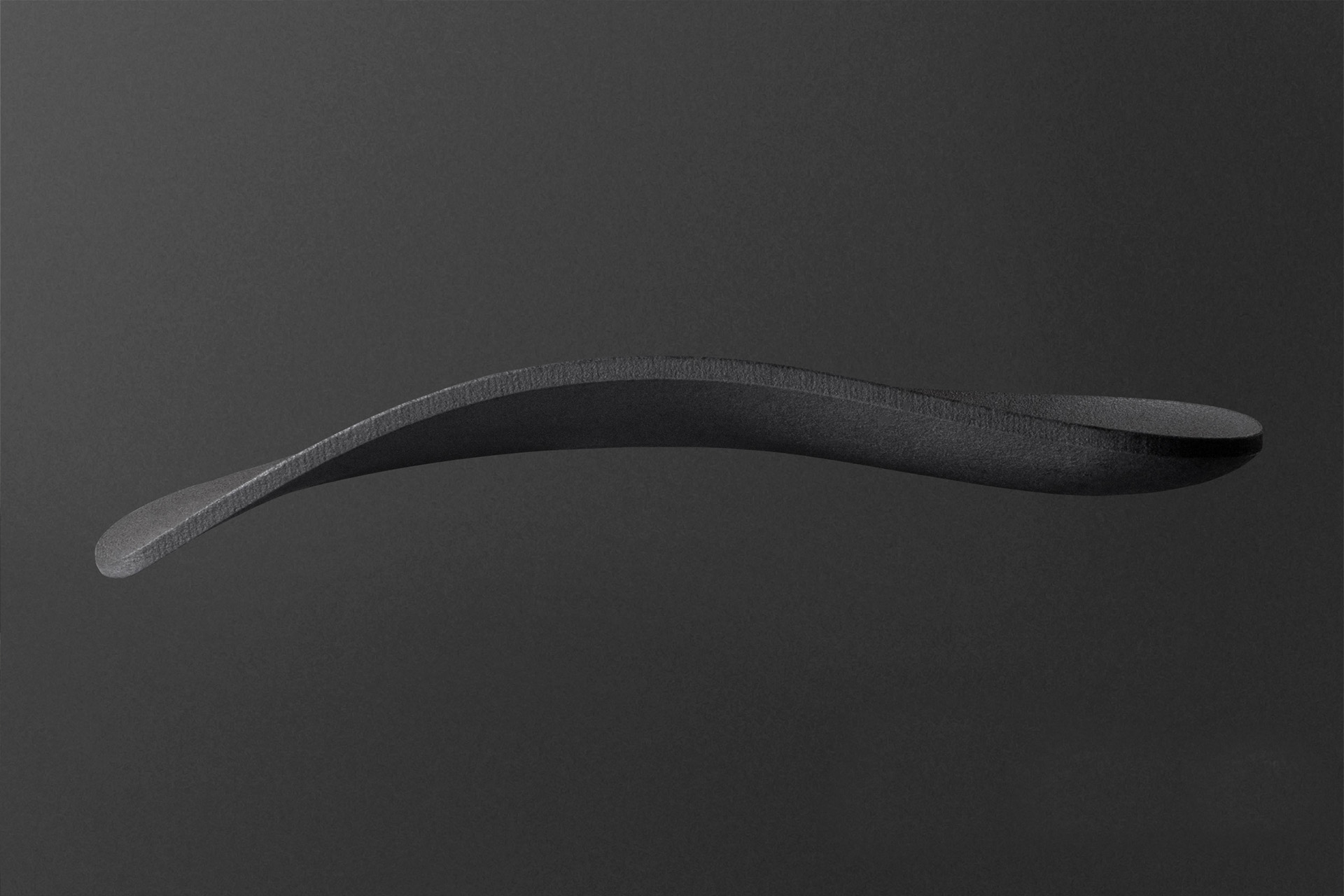
Key Benefits of Quality Golf Insoles
Enhanced Stability During Your Swing
Perhaps the most immediate benefit of golf shoe orthotics is their improved stability during your swing. By supporting the arches of your feet and limiting excessive pronation or supination, quality insoles establish a solid foundation to generate power.
This enhanced stability is particularly noticeable during the transition from backswing to downswing—a crucial moment when weight transfer and timing must be precisely coordinated. With the best golf insoles, many players report feeling more “connected” to the ground, allowing for more consistent ball striking.
Injury Prevention and Pain Reduction
Golf may not be a contact sport, but the repetitive nature of the swing can lead to overuse injuries, particularly in the feet, ankles, knees, and lower back. Quality golf insoles help mitigate these risks by ensuring proper alignment and reducing strain on joints and soft tissues.
For golfers dealing with existing conditions like plantar fasciitis, metatarsalgia, or heel spurs, specialised orthotics for golf shoes can make the difference between playing in pain and enjoying a comfortable round. By addressing the underlying biomechanical issues, these insoles often allow players to extend their golfing careers and maintain performance as they age.
Reduced Fatigue During Rounds
An 18-hole round of golf can involve walking 6-7 kilometres, often over uneven terrain. This physical demand can lead to foot and leg fatigue, affecting your swing mechanics, particularly in the later holes.
The best golf shoe inserts provide additional cushioning and support that reduces muscle fatigue, helping maintain consistent performance throughout your round. Many golfers report that this benefit becomes increasingly apparent during multi-day tournaments or golf holidays, when playing consecutive rounds would otherwise lead to cumulative fatigue.
Potential Performance Improvements
Stude’s research demonstrated that using quality orthotics for golfers can lead to measurable performance improvements. The increased clubhead velocity observed in their study is significant, but the consistency of proper foot support is equally important.
Golf is, fundamentally, a game of consistency. By stabilising your foundation and reducing fatigue, golf insoles contribute to more repeatable swing mechanics and, consequently, more predictable ball flight. For many golfers, this consistency proves more valuable than occasional distance gains.
Selecting the Right Golf Insoles for Your Needs
Finding the best insoles for golf shoes requires consideration of several factors specific to your situation:
Consultation with a podiatrist is advisable if you have pre-existing foot conditions or biomechanical issues. They can assess whether custom golf orthotic insoles would provide significant benefits over pre-fabricated options.
High-quality pre-fabricated golf shoe insoles explicitly designed for the sport may be sufficient for those without specific issues. Look for products that offer arch support appropriate to your foot type and cushioning that balances comfort with stability.
Regardless of your route, ensure that your golf insoles fit properly in your shoes without creating excessive tightness or altering the overall fit. Even the best golf insoles cannot provide their intended benefits if they cause discomfort or interfere with your natural movement.
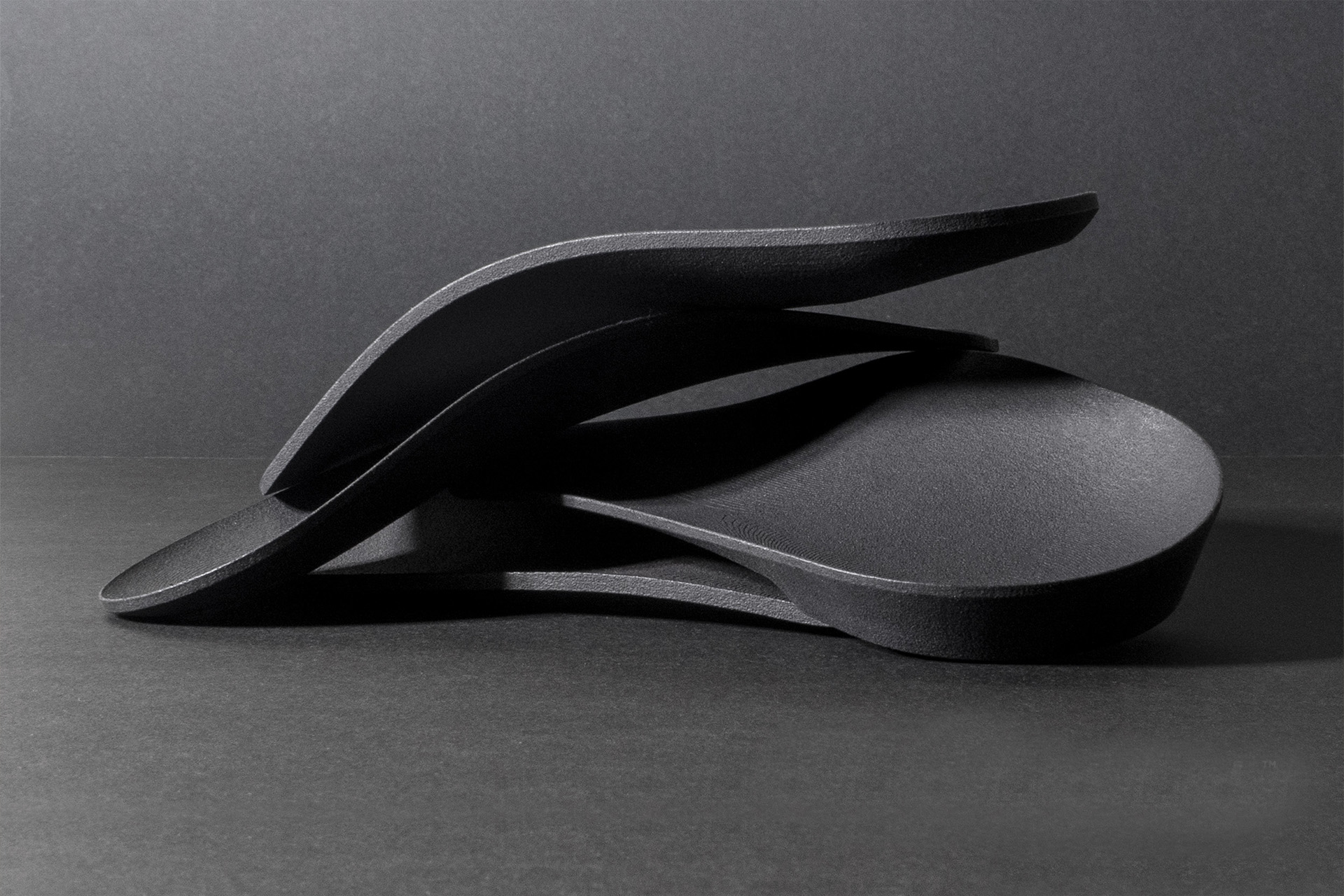
A Foundation for Better Golf
Jack Nicklaus’s observation about the crucial role of the feet in the golf swing provides perfect perspective on why quality golf insoles deserve consideration from players at all levels. These often-overlooked accessories can address the fundamental connection between your body and the ground—a connection that influences every aspect of your swing.
Whether you opt for pre-fabricated golf shoe inserts or custom orthotics for golf shoes, the potential benefits extend beyond simple comfort. By enhancing stability, preventing injuries, reducing fatigue, and potentially improving performance metrics like clubhead speed, golf insoles represent one of the most direct ways to improve your relationship with the ground beneath your feet.
In a sport where minor adjustments can yield significant results, attending to this fundamental aspect of your equipment might be the key to unlocking new levels of consistency and performance in your game. The best golf insoles aren’t merely accessories—they’re investments in the foundation of every swing you take.
If you’re looking for the best golf insoles in Singapore, contact us at The Foot Practice for an initial consultation.


